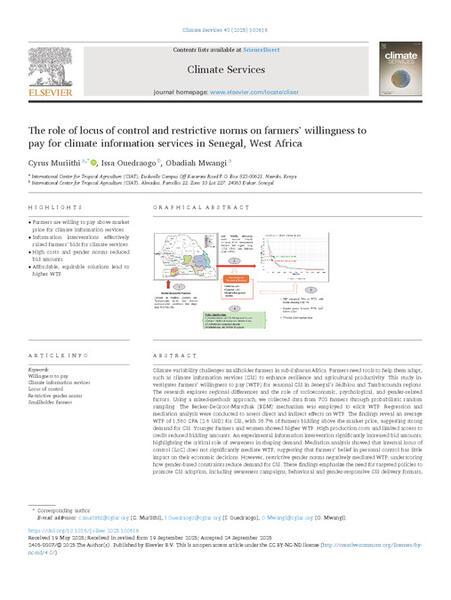
Climate variability challenges smallholder farmers in sub-Saharan Africa. Farmers need tools to help them adapt, such as climate information services (CIS) to enhance resilience and agricultural productivity. This study investigates farmers’ willingness to pay (WTP) for seasonal CIS in Senegal’s Sédhiou and Tambacounda regions. The research explores regional differences and the role of socioeconomic, psychological, and gender-related factors. Using a mixed-methods approach, we collected data from 708 farmers through probabilistic random sampling. The Becker-DeGroot-Marschak (BDM) mechanism was employed to elicit WTP. Regression and mediation analysis were conducted to assess direct and indirect effects on WTP. The findings reveal an average WTP of 1,560 CFA (2.6 USD) for CIS, with 36.7% of farmers bidding above the market price, suggesting strong demand for CIS. Younger farmers and women showed higher WTP. High production costs and limited access to credit reduced bidding amounts. An experimental information intervention significantly increased bid amounts, highlighting the critical role of awareness in shaping demand. Mediation analysis showed that internal locus of control (LoC) does not significantly mediate WTP, suggesting that farmers’ belief in personal control has little impact on their economic decisions. However, restrictive gender norms negatively mediated WTP, underscoring how gender-based constraints reduce demand for CIS. These findings emphasize the need for targeted policies to promote CIS adoption, including awareness campaigns, behavioral and gender-responsive CIS delivery formats, and affordable financial services. By addressing both economic and behavioral barriers, policymakers can improve resilience and agricultural productivity through improved access to climate information.

